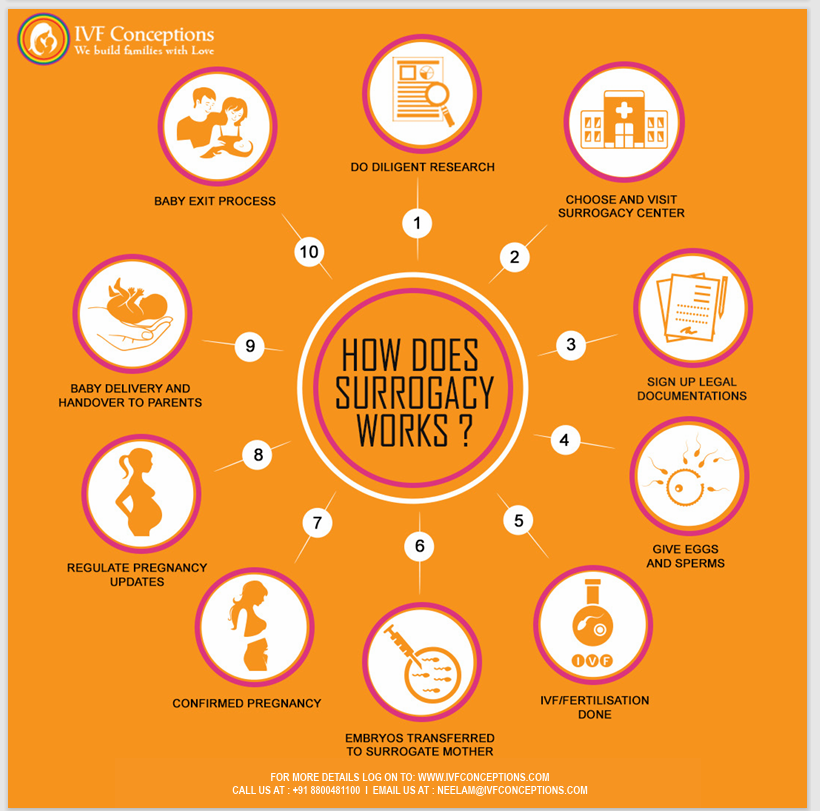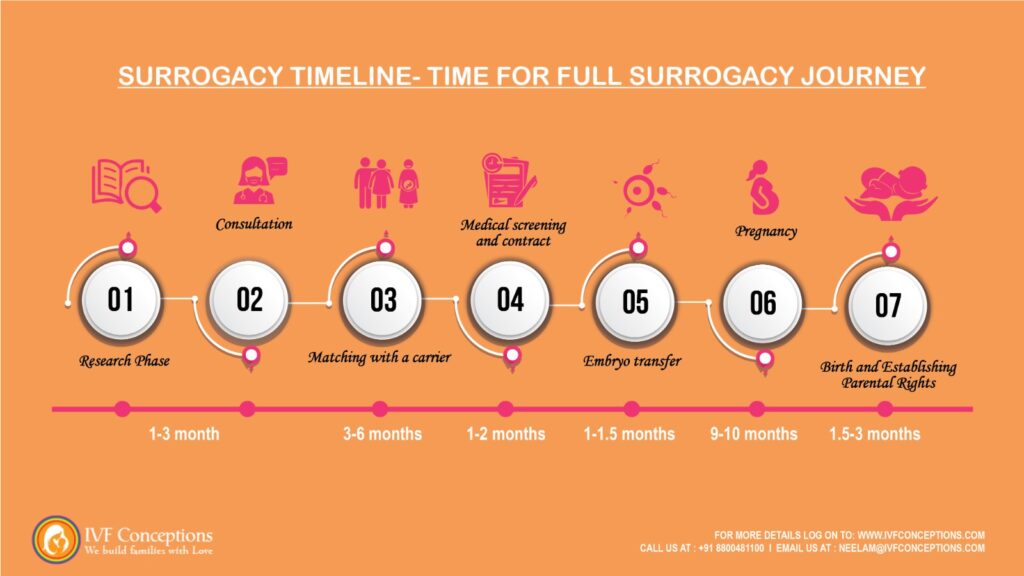What is the Definition of Surrogacy

Understanding the Definition of Surrogacy: A Comprehensive Guide
What is the Definition of Surrogacy? In 2025, surrogacy continues to be a widely discussed and evolving method of assisted reproduction, offering hope to individuals and couples unable to conceive naturally. It is a process where a gestational surrogate mother carries and delivers a baby on behalf of intended parents. With advancements in surrogacy laws and ethical considerations, the practice is gaining global acceptance, though regulations vary by country. This guide explores the meaning of surrogacy, its legal framework, and how it has become a viable option for growing families worldwide.
- Book an online appointment: Get a free online consultation.
- Call\W:+91-8800481100 Email:neelam@ivfconceptions.com
While the concept of surrogacy may seem simple, there are various forms and definitions surrounding it that can be confusing to many. In this article, we will delve into the definition of surrogacy, exploring its history, types, and how it differs from traditional pregnancy and adoption.
More Resources to Read:
Surrogacy Guide for Surrogate Mothers
Surrogacy Guide for Intended Parents
How does the surrogacy process work
As the practice of surrogacy continues to evolve and gain popularity, it is crucial to have a clear and comprehensive understanding of its definition and implications. Moreover, the concept of surrogacy raises important questions about the definition of motherhood, family dynamics, and the commodification of reproductive services.
By exploring the definition of surrogacy, we can gain a deeper insight into this complex and controversial practice and its impact on individuals and society as a whole. So, let us begin by defining what exactly surrogacy means and what it entails.
Introduction
Surrogacy, a practice in which a woman carries a pregnancy and gives birth to a child on behalf of another individual or couple, has gained significant recognition and popularity in recent years. This alternative reproductive method provides hope and options for those facing infertility or other medical conditions that prevent them from conceiving and carrying a pregnancy themselves.
With advancements in reproductive technology and an increased acceptance of diverse family structures, surrogacy has become a viable solution for individuals and couples seeking to fulfill their dream of parenthood. However, it is crucial to have a clear understanding of the definition and meaning of surrogacy to navigate this complex and emotionally charged process successfully.

What is the Definition of Surrogacy?
Surrogacy can be defined as a legal arrangement in which a woman willingly agrees to carry and give birth to a child on behalf of another individual or couple. This process involves a carefully drawn-up contract that outlines the rights and responsibilities of all parties involved.
The surrogate, also known as the gestational carrier, is not genetically related to the child she carries, as the intended parents’ gametes or embryos are used for the conception. Assisted reproductive technologies, such as in vitro fertilization (IVF), are commonly employed to achieve pregnancy in surrogacy arrangements.
These technologies enable the intended parents to create embryos outside the womb and transfer them to the surrogate’s uterus. The use of surrogacy and assisted reproductive technologies provides hope and possibilities for individuals and couples who are unable to conceive naturally, allowing them the opportunity to experience the joys of parenthood.
What is the Meaning of Surrogacy?
Surrogacy is a complex process that raises various emotional and ethical considerations. On an emotional level, both intended parents and surrogates may experience a range of feelings throughout the journey. For intended parents, the longing for a child and the hope of fulfilling their dream of parenthood can create a deep sense of vulnerability and anticipation.
On the other hand, surrogates may encounter a mix of emotions, including a sense of fulfillment from helping others and the physical and emotional challenges of carrying a child that is not biologically theirs.
The ethical aspects of surrogacy also deserve careful consideration. Questions arise regarding the autonomy and well-being of the surrogate, fair compensation, and the potential for exploitation. All parties involved in the surrogacy process must have access to legal and psychological support, ensuring their rights and interests are protected.
For individuals or couples who are unable to conceive or carry a pregnancy to term, surrogacy can offer a valuable solution. It provides an opportunity for these aspiring parents to experience the joy of raising a child biologically linked to them, even if they are unable to conceive naturally. Surrogacy offers hope and possibilities for creating families and fulfilling the dreams of individuals or couples who have struggled with infertility or other medical conditions.

How Does Surrogacy Work?
Surrogacy arrangements can be categorized into two main types: traditional surrogacy and gestational surrogacy. In traditional surrogacy, the surrogate mother is also the biological mother of the child. This is achieved through artificial insemination using the sperm of the intended father or a donor.
On the other hand, gestational surrogacy involves the use of in vitro fertilization (IVF) to create an embryo using the intended parents’ or donors’ genetic material. The embryo is then transferred to the surrogate’s uterus for gestation and childbirth.
The surrogacy process involves several legal and medical procedures. First and foremost, the screening of potential surrogates is conducted to ensure their physical and psychological suitability for the role. This includes medical evaluations, background checks, and psychological assessments. Fertility treatments, such as IVF, may be required to create embryos for gestational surrogacy.
Legal contracts play a vital role in establishing the rights and responsibilities of all parties involved. These contracts outline financial agreements, parental rights, and the surrogate’s commitment to relinquishing custody of the child after birth. It is crucial for all parties to consult with legal professionals specializing in reproductive law to navigate the complex legal landscape surrounding surrogacy.
Fertility clinics and agencies play a crucial role in facilitating surrogacy arrangements. Fertility clinics provide the necessary medical expertise and assistance throughout the process, including fertility treatments and embryo transfers. Agencies can help match intended parents with suitable surrogates, provide support and guidance, and handle administrative tasks. Working with reputable clinics and agencies that prioritize the well-being and rights of all parties involved is essential in ensuring a smooth and ethical surrogacy journey.
In conclusion, surrogacy involves various types of arrangements, medical procedures, legal contracts, and the involvement of fertility clinics, agencies, and legal professionals. It is a complex process that requires careful consideration of emotional, ethical, and legal aspects. Understanding the different facets of surrogacy can help individuals or couples navigate this path toward fulfilling their dreams of parenthood.

How Does the Surrogacy Process Work?
So, most intended parents ask how long surrogacy takes and what is timeline of surrogacy.
Outlines the surrogacy process timeline for intended parents:
| Stage | Description of Stage | Duration |
| Research Phase | Explore family building options and decide on surrogacy. | Personal timeframe |
| Consultation and Application | Choose a surrogacy agency, sign agreement, and start embryo creation (if needed). | 1-3 Months |
| Matching | Agency finds and presents potential gestational carriers. Meet and decide on a match. | 3-6 Months |
| Medical Screening and Contracts | Carrier undergoes medical and psychological screening. Sign surrogacy contract. | 1-2 Months |
| Embryo Transfer | Prepare for embryo transfer. Success may take multiple attempts. | 1-1.5 Months |
| Pregnancy | Gestational carrier’s pregnancy, approximately 40 weeks. | 9-10 Months |
| Birth and Postpartum | Baby’s birth, establish parental rights, and postpartum period. | 1.5-3 Months |
Please keep in mind that the durations mentioned in the table are approximate and can vary depending on individual circumstances and other factors. Always consult with a reputable surrogacy agency or professional to get personalized guidance throughout the surrogacy journey.
Once a surrogate is chosen and deemed suitable, legal contracts are drafted to outline the rights and responsibilities of all parties involved. These contracts cover aspects such as parental rights, financial arrangements, and potential risks. All parties must have a clear understanding and agreement before proceeding with the surrogacy process.
Fertility clinics play a key role in facilitating surrogacy arrangements. They oversee the medical procedures, including the retrieval and fertilization of eggs, embryo transfer, and ongoing monitoring of the surrogate’s health and pregnancy. These clinics ensure that all necessary medical protocols and ethical guidelines are followed to maximize the chances of a successful surrogacy journey.
In addition to the clinics, surrogacy agencies or professionals can assist in matching intended parents with suitable surrogates. They provide support, guidance, and coordination throughout the entire process. These professionals may also assist in handling the administrative and logistical aspects of surrogacy, such as coordinating medical appointments, managing finances, and providing emotional support.
Legal professionals specialized in reproductive law also play a crucial role in surrogacy arrangements. They ensure that all legal requirements and regulations are met, and that the rights and interests of all parties involved are protected. These professionals draft and review legal contracts, facilitate the necessary paperwork, and guide intended parents and surrogates through the legal process.
Overall, surrogacy involves a complex and carefully orchestrated process that encompasses medical, legal, and emotional aspects. The combination of the different types of surrogacy, medical procedures, and the involvement of fertility clinics, agencies, and legal professionals all contribute to making surrogacy a viable option for individuals or couples seeking to build their families.
Additional guide for intended parents:
Best surrogacy agency in India
Best surrogacy agency in Mexico
Best surrogacy agency in Colombia
Best surrogacy agency in Argentina
Best surrogacy agency in Georgia
Best surrogacy agency in the USA
Best surrogacy agency in Ukraine
Best surrogacy agency in Armenia

Conclusion
In conclusion, surrogacy is a complex and highly personal decision that involves a surrogate mother carrying a child for another individual or couple. It can be a beautiful and rewarding experience for all parties involved, but it is important to carefully consider all aspects, including legal and emotional implications, before embarking on this journey. With the help of trained professionals and open communication, surrogacy can be a successful and fulfilling option for those looking to expand their families.
If you’d like to learn more about IVF, Egg Donation, or surrogacy services globally, check out the rest of our website at Complete Surrogacy Agency. We offer legally secure and affordable surrogacy consulting services for FREE.
For more resources on IVF and Surrogacy, browse our other web page- IVF Conceptions.
For more resources on IVF and Surrogacy, browse our other web page- Georgia Surrogacy Agency.
Complete Surrogacy: Your Trusted Partner in International Surrogacy
At Complete Surrogacy, we have over 15 years of experience in international surrogacy, guiding 4,000+ intended parents worldwide. We provide safe, ethical, and affordable surrogacy solutions for single parents, LGBTQ+ couples, and heterosexual couples.
As members of EFS and ESHRE, we adhere to the highest ethical and professional standards. Our expert team is committed to providing accurate, compassionate, and transparent guidance, ensuring a legally secure and smooth journey to parenthood.
Let us help you build your family with trust, care, and integrity.
Get in touch for one FREE Surrogacy Consultancy!
Our team includes experts from diverse backgrounds with leading reproductive attorneys, professionally trained top fertility doctors, former surrogacy case managers, experienced and kind surrogate mother and egg donor coordinators, mental health professionals specializing in infertility counseling, and a logistic support team to assist you in your chosen surrogacy country.

FAQ
What is the definition of surrogacy and how does it differ from other assisted reproductive technologies?
Surrogacy is a method of assisted reproductive technology (ART) where a woman carries and gives birth to a child on behalf of another person or couple. It differs from other ARTs, such as in vitro fertilization (IVF), because in surrogacy, the intended parents use their own genetic material or donor material to create an embryo, which is then transferred to the surrogate’s uterus.
This allows individuals or couples who are unable to carry a pregnancy themselves to still have a biological child. Surrogacy involves a contractual agreement between the intended parents and the surrogate, outlining the rights and responsibilities of all parties involved.
What are the different types of surrogacy arrangements and how do they vary in terms of legal and ethical considerations?
There are two main types of surrogacy arrangements: traditional surrogacy and gestational surrogacy. In traditional surrogacy, the surrogate mother uses her own eggs and is genetically related to the child. In gestational surrogacy, the surrogate carries a child conceived through IVF, using the intended parents’ eggs and sperm, making her genetically unrelated to the child.
In terms of legal and ethical considerations, traditional surrogacy can raise complex legal and ethical issues, as the surrogate is also the biological mother. This can lead to custody disputes and challenges in establishing legal parentage.
Conversely, gestational surrogacy is usually seen as less legally and ethically complex, as it involves a clearer distinction between the biological and surrogate mother. However, both types require careful legal and ethical considerations to protect the rights and well-being of all parties involved.
How does the process of surrogacy work, from finding a surrogate to the birth of the child?
The process of surrogacy involves several steps. First, intended parents typically work with an agency or independently to find a surrogate. This can involve interviews, background checks, and legal agreements.
Once a suitable surrogate is found, the next step is medical screening and fertility treatments, which can include in vitro fertilization (IVF) using the intended parent’s genetic material or donor eggs/sperm. Once the surrogate is pregnant, she receives prenatal care while the intended parents support her financially and emotionally.
The birth of the child usually takes place in a hospital, and legal processes such as parental rights and custody are handled based on the laws of the respective jurisdiction.
What are some of the reasons why people choose surrogacy as a family-building option?
Some reasons why people choose surrogacy as a family-building option include infertility, same-sex couples or individuals who want to have a biologically related child, medical conditions that make pregnancy unsafe or impossible, and a desire to help others who cannot conceive a child on their own.
Surrogacy provides a viable solution for individuals and couples who are unable to conceive or carry a pregnancy to term, allowing them to experience the joys of parenthood and create a family. Additionally, surrogacy offers a unique opportunity for a compassionate act of generosity by allowing individuals to help others achieve their dream of having a child.
What are the potential challenges and controversies surrounding surrogacy, and how do different countries and jurisdictions regulate it?
Surrogacy poses various challenges and controversies. Ethical concerns include the commodification of women’s bodies and the potential for exploitation. Legal issues arise in determining the rights and responsibilities of the surrogate, intended parents, and the child.
Different countries have varying regulations. Some ban surrogacy altogether, while others have strict regulations or allow only altruistic surrogacy. In countries where commercial surrogacy is permitted, debates exist regarding the appropriate compensation and oversight.
Regulation approaches range from comprehensive laws with extensive requirements to more relaxed frameworks. The complexities of surrogacy highlight the need for careful consideration of the ethical and legal implications to ensure the protection of all parties involved.

Author Bio: Neelam Chhagani is an International Surrogacy Expert with 15 years of experience in the fertility and surrogacy domain. As the founder of IVF Conceptions and Complete Surrogacy, she has guided over 4,000 intended parents worldwide on their surrogacy journey to parenthood. Recognized as a trusted authority, she specializes in holistic infertility solutions and third-party reproduction consulting.
Holding an MA in Counselling Psychology and a PGD in Mental Health, Neelam is a proud member of the European Fertility Society (EFS) and the European Society of Human Reproduction and Embryology (ESHRE). She is also a leading surrogacy blogger, providing valuable insights into ethical and practical surrogacy solutions.
Since 2010, committed to supporting ALL family types, Neelam has been passionate about helping intended parents grow their families with compassion, integrity, and a focus on secure and affordable surrogacy options Globally.
Learn more about Neelam:
https://www.ivfconceptions.com/neelam-chhagani-surrogacy-consultant/
https://www.linkedin.com/in/neelam-chhagani-92892229/














I was introduced to Neelam by a friend who worked with Neelam for surrogacy. Neelam is absolutely wonderful. I am a single male and the journey to fatherhood is not that easy. Neelam connected me to a program ideal for my circumstances. She was with me throughout the pregnancy providing advice and guidance along the way. I am so grateful I found her and am thrilled today that I have a beautiful daughter. I highly recommend Neelam to anyone who is on a journey to become a parent. Having a child has changed my world for the better. I wish others success with their own journey and recommend you connect with Neelam to find a path that is best for you.
SA (USA)